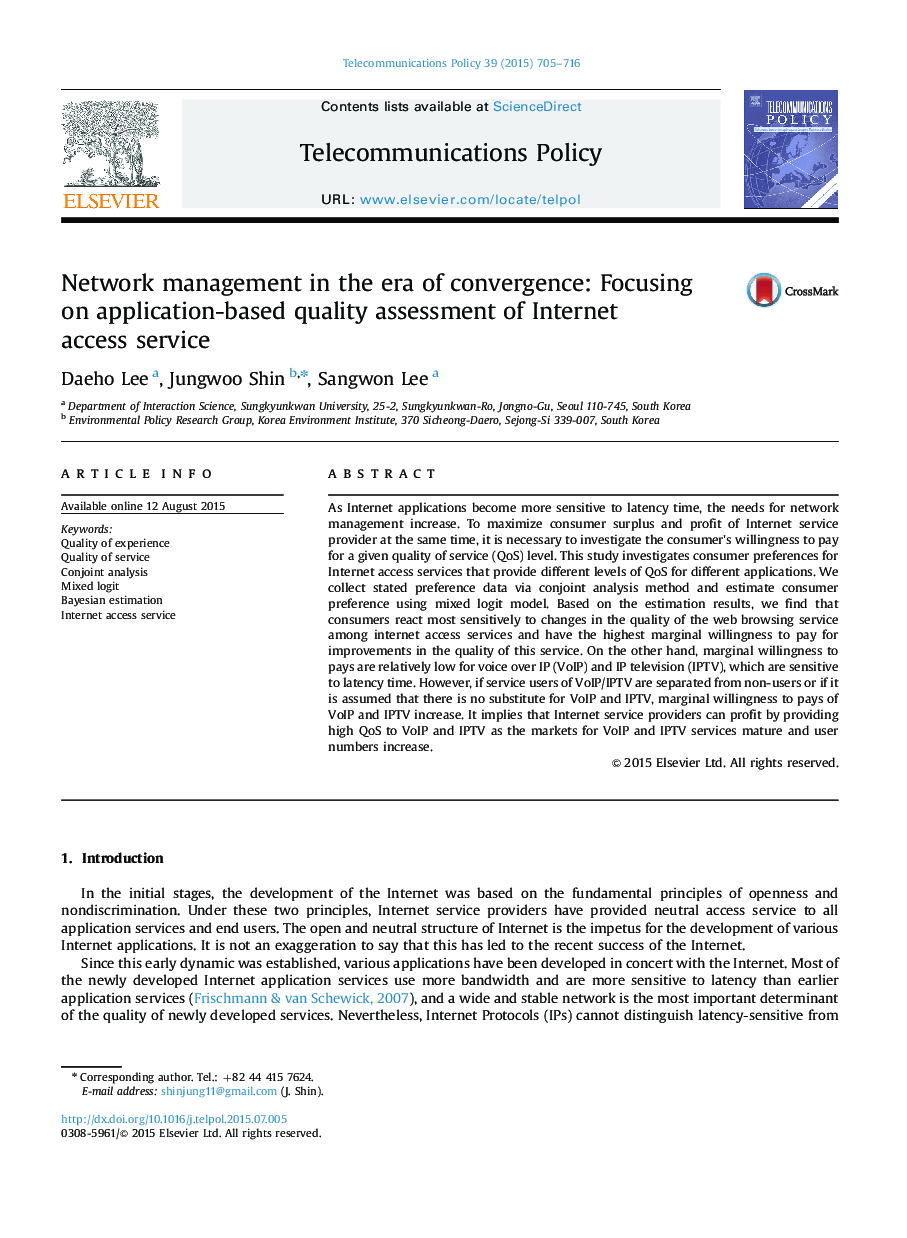| Article ID | Journal | Published Year | Pages | File Type |
|---|---|---|---|---|
| 556603 | Telecommunications Policy | 2015 | 12 Pages |
•After emergence of Internet, various applications have been developed.•Most of the newly developed services are more sensitive to latency time.•To maintain the quality of service, the needs for network management increase.•This study analyzes marginal willingness to pay for the quality of service.•Based on the results, reasonable direction of network management could be suggested.
As Internet applications become more sensitive to latency time, the needs for network management increase. To maximize consumer surplus and profit of Internet service provider at the same time, it is necessary to investigate the consumer׳s willingness to pay for a given quality of service (QoS) level. This study investigates consumer preferences for Internet access services that provide different levels of QoS for different applications. We collect stated preference data via conjoint analysis method and estimate consumer preference using mixed logit model. Based on the estimation results, we find that consumers react most sensitively to changes in the quality of the web browsing service among internet access services and have the highest marginal willingness to pay for improvements in the quality of this service. On the other hand, marginal willingness to pays are relatively low for voice over IP (VoIP) and IP television (IPTV), which are sensitive to latency time. However, if service users of VoIP/IPTV are separated from non-users or if it is assumed that there is no substitute for VoIP and IPTV, marginal willingness to pays of VoIP and IPTV increase. It implies that Internet service providers can profit by providing high QoS to VoIP and IPTV as the markets for VoIP and IPTV services mature and user numbers increase.
